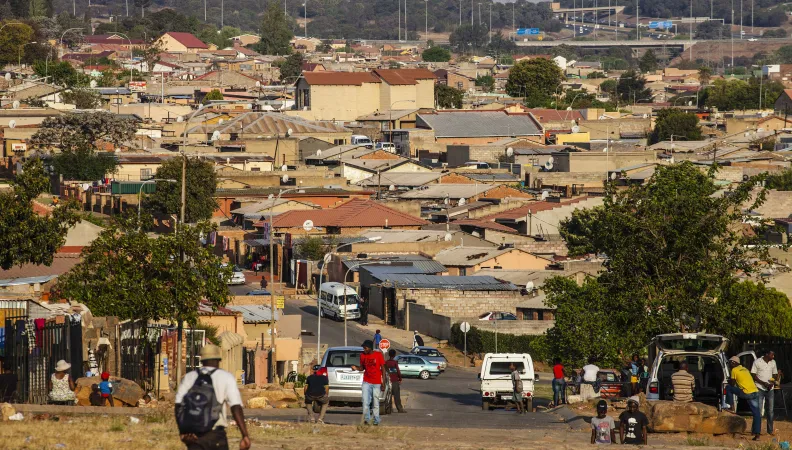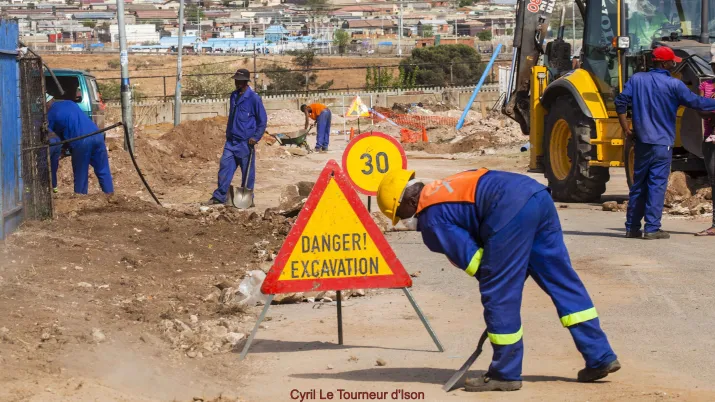Share the page
Conceptualizing and analyzing inequality and social cohesion in South Africa

-
Project start date
-
2016Status
Completed
-
Project end date
-
2017
-
Project duration
-
16 months
-
AFD financing amount
-
220000
-
Country and region
-
Partners
-
Research program
Twenty years on since independence and the end of Apartheid, South Africa is yet to emerge as a socially cohesive nation. The proposed research project aims to formulate a relevant approach for social cohesion in the case of South Africa and analyze the link between social cohesion and ethnic and racial inequalities.
Context
Twenty years on since independence and the end of Apartheid, South Africa is yet to emerge as a socially cohesive nation. South Africans still live apart – geographically and socially – except within a few groups where the constituents share common identities such as race, ethnicity and class. Moreover, inequality continues to provoke tension – between the rich and the poor, between racial groups, between the urban metropoles and former homelands, and between farm owners and their workers. Economic growth, to the extent it has occurred, has not brought with it greater equality and cohesion in South Africa, the essential ingredient of inclusive growth.
Scholars, policy makers, opinion leaders, and citizenry of the country have been extensively debating issues surrounding the cohesiveness of South African society. Yet, the term “social cohesion” has been used loosely in academic literature and political discourse, and its meaning and its mutual dependence with economic development have not been well understood. We do not yet have a clearly defined concept – and hence definition – of social cohesion as relevant for inclusive development in South Africa. Without definition and measurement, we cannot conclusively ascertain if social cohesion has improved. Without knowing a few key levers (i.e., determinants of social cohesion), it would be difficult to formulate policies that can materially improve social cohesion and effectively achieve inclusive development.
Objectives
Against this background, the proposed research project aims to contribute to addressing social cohesion and inclusive development, two of the most fundamental challenges facing South Africa. More specifically, the objectives are to:
- formulate a relevant approach for social cohesion in the case of South Africa;
- construct and measure social cohesion indicators;
- conduct an in-depth analysis of ethnic and racial inequalities in South Africa;
- shed light on the linkages between social cohesion and inequalities and their implications for policies.
The research will combine the wealth of knowledge of top South African scholars about history, society, politics and economy of the country with the expertise of a Japanese researcher and that of the AFD’s research officers on global practices and analytical tools.
Research findings
Preliminary results from the Social Cohesion Index research suggest:
- We can operationalise a definition of social cohesion and measure it using available national data.
- There is a large degree of consistency in trends in the index and its constituent components over time across four national data sets.
- Social cohesion in South Africa increased between 2008 and 2011, although the trend thereafter is less clear and a longer time series is required.
- Higher levels of per capita income and employment are positively associated with higher social cohesion.
- Poverty, unemployment, and service delivery protest are negatively correlated with social cohesion.
- Municipal policy and competence are closely associated with higher social cohesion.
Our research shows that social cohesion hinges on overcoming prevailing prejudices, interracial mistrust, and negative attitudes towards integration. How people perceive inequality (or not) determines the likelihood of inter-racial interactions.
High levels of inequality and the perception that our inequality has not improved in the post-apartheid period are the key impediments to social cohesion in South Africa. This importance remains even when inequality is analyzed alongside other clearly critical influences such as racial, spatial, and educational factors.
There are two minimum requirements for building a cohesive society in South Africa:
- Prioritize a defined and monitored agreement to overcome poverty, inequality and social exclusion; and
- Do it in a way that actively and legitimately ensures voice and agency for marginalised individuals and communities.
Our studies of social cohesion show that these bold policies to address socio-economic challenges must include behavior and practices in everyday life that demonstrate evidence of a society that is actually committed to overcoming remaining prejudices, interracial mistrust, and negative attitudes.
To build, track, and improve social cohesion we should start by operationalising a shared definition of social cohesion that includes five dimensions (inclusion, belonging, social relationship, participation and legitimacy).
Contact
-
Anda DAVID
Economist, scientific coordinator of the EU-AFD Research Facility on Inequalities




